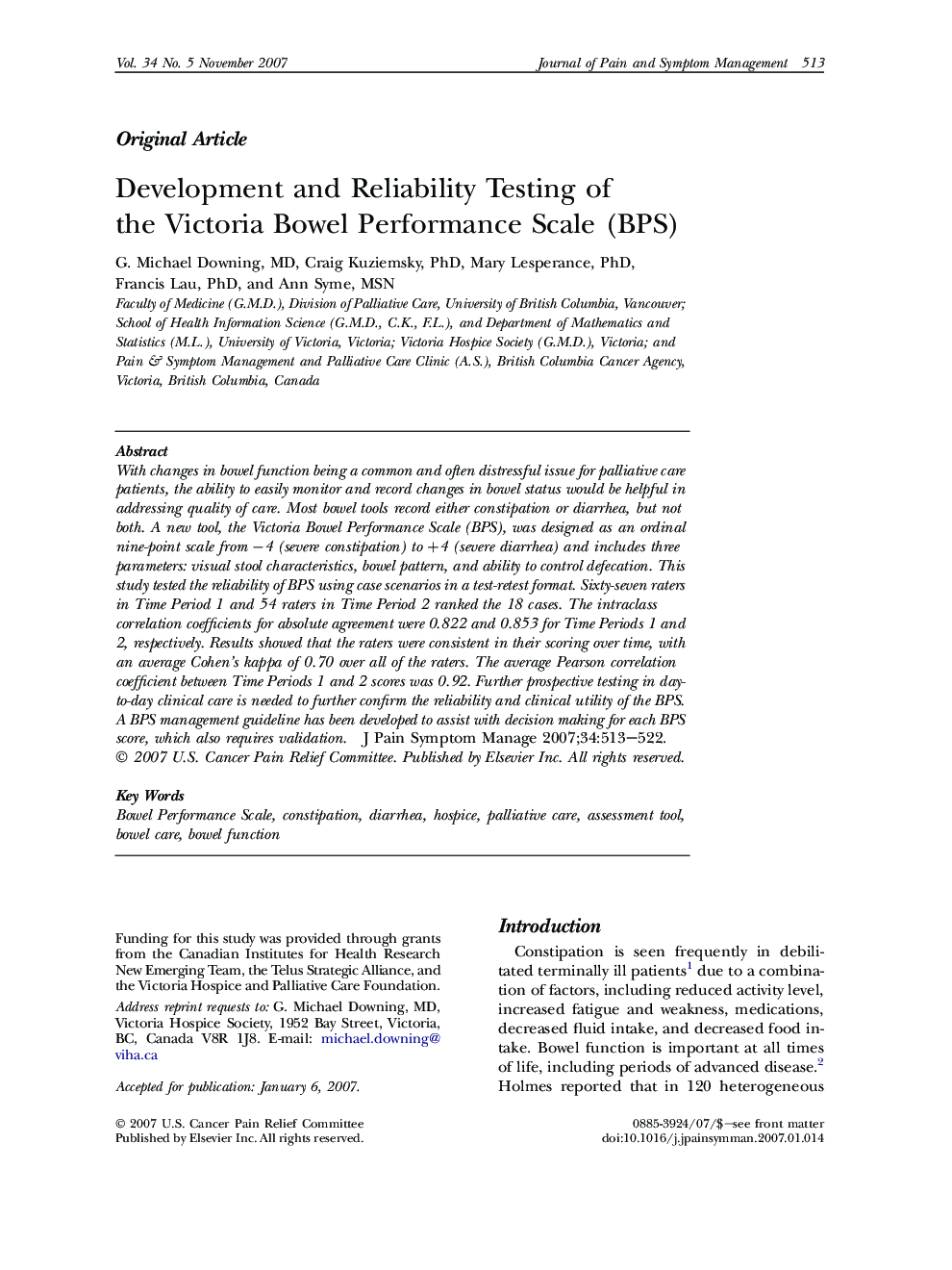| Article ID | Journal | Published Year | Pages | File Type |
|---|---|---|---|---|
| 2730906 | Journal of Pain and Symptom Management | 2007 | 10 Pages |
With changes in bowel function being a common and often distressful issue for palliative care patients, the ability to easily monitor and record changes in bowel status would be helpful in addressing quality of care. Most bowel tools record either constipation or diarrhea, but not both. A new tool, the Victoria Bowel Performance Scale (BPS), was designed as an ordinal nine-point scale from −4 (severe constipation) to +4 (severe diarrhea) and includes three parameters: visual stool characteristics, bowel pattern, and ability to control defecation. This study tested the reliability of BPS using case scenarios in a test-retest format. Sixty-seven raters in Time Period 1 and 54 raters in Time Period 2 ranked the 18 cases. The intraclass correlation coefficients for absolute agreement were 0.822 and 0.853 for Time Periods 1 and 2, respectively. Results showed that the raters were consistent in their scoring over time, with an average Cohen's kappa of 0.70 over all of the raters. The average Pearson correlation coefficient between Time Periods 1 and 2 scores was 0.92. Further prospective testing in day-to-day clinical care is needed to further confirm the reliability and clinical utility of the BPS. A BPS management guideline has been developed to assist with decision making for each BPS score, which also requires validation.
